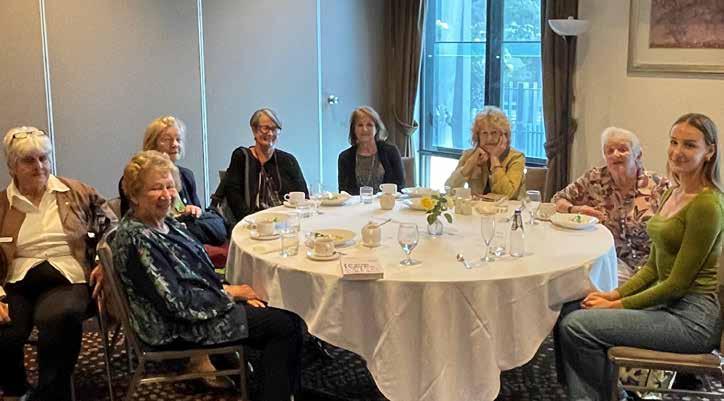
1 minute read
March Melba Group Luncheon
From Secret Ballot to Democracy Sausage
Professor Judith Brett, who is Emeritus Professor of Politics at Latrobe University, spoke at the Melba Group Luncheon on 25th March. The topic of her presentation is “From Secret Ballot to Democracy Sausage.” Melba Group is a gathering of like minded women who meet monthly, usually on the last Friday of the month at Graduate House to network and discuss topical issues. Professor Brett outlined the progress of the Australian electoral system from the 1850s to the 1920s. Originally, she said, Australians knew less about how our electoral system developed than we knew about English rotten boroughs”. Eventually, the system which came to be known as “The Australian Ballot”, included innovations such as compulsory voting, the secret ballot, the preferential voting system and voting on a Saturday. In the past some electoral systems involved saying in a loud voice who you were voting for. Tenant farmers and others felt pressured to vote a certain way. In other places the ballot papers were coloured so other people could see who you chose. Australia did not invent the secret ballot but made it practical through characteristics such as compartmentalised voting booths, and printed ballot papers which could be marked simply. Previously, voting on a Saturday was not common. Neither was postal or absentee voting. Mid week voting disenfranchised students who couldn’t travel and unionists who needed to be able to vote at the closest booth. Any voting arrangements which made voting more difficult ran the risk of disenfranchising sectors of the population. Fair voting demanded impartial public servants to administer the system. This did not always occur. Similarly there were differences in whether women or First Nations people could vote. Further developments came with the debates on Federation. Now the Australian voting system is robust and Australians’ trust in government is witnessed by the acceptance of registering for compulsory vaccination, unlike in the United States. The majority of people in Australia turn out to vote, giving legitimacy and more equality in decision-making. Without compulsory voting we would not have implemented Medicare or integrated new migrants who became citizens. We now have a fully functioning multicultural electoral system. This summary is provided by Elizabeth Owen, a journalist and an attendee at the March Melba Group luncheon
Advertisement









